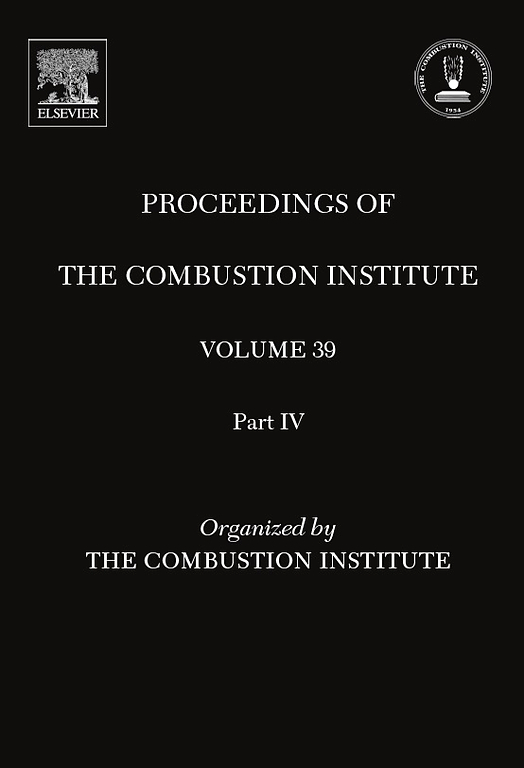Enhancement of chemical heat release in a generic scramjet combustor using plasma injection modules
IF 5.3
2区 工程技术
Q2 ENERGY & FUELS
引用次数: 0
Abstract
The ability to achieve stable heat release from fuel injected into high-speed air-breathing propulsion systems (such as scramjets) operating at supersonic speeds across a wide range of inlet conditions is crucial for hypersonic applications. Energetic enhancement using plasma is an attractive method of active flameholding and provides the potential for enhancing combustion in scramjet systems. Plasma injection modules (PIMs) have been used previously for flameholding and flow control and this work extends the application of PIMs to combustion enhancement in a stably burning, axisymmetric scramjet combustor. A narrow range of operating conditions, where the engine had an excess of unburned fuel and was on the verge of transitioning from scram-mode to ram-mode operation, generated local conditions in the flameholder where improvements to a specific stream thrust metric of up to 42.1 % during actuation of the PIMs was possible. The requirement for low operating efficiency in the system in order to leverage energy from the PIMs to improve performance is discussed, as well as the effect of modifying the upstream fuel injection scheme. A comparison of the thermal power required to match the result of adding ∼8 kW of power from the PIMs is presented and indicates that the PIMs can successfully improve the performance of a stably burning scramjet combustor, albeit over a narrow range of inefficient operating conditions.利用等离子体喷射模块增强通用扰流喷气燃烧器中的化学热释放
将燃料注入以超音速运行的高速喷气推进系统(如scramjet),使其在各种进气条件下都能稳定释放热量,这对高超音速应用至关重要。利用等离子体增强能量是一种有吸引力的主动火焰保持方法,并为增强扰流喷气推进系统的燃烧提供了可能性。等离子体喷射模块(PIMs)以前曾用于火焰保持和流量控制,这项工作将等离子体喷射模块的应用扩展到了稳定燃烧的轴对称扰流喷射燃烧器中的燃烧强化。在发动机未燃烧燃料过量并即将从扰动模式过渡到冲压模式的狭窄工作条件范围内,焰室产生了局部条件,在启动 PIMs 期间,特定流推力指标可提高 42.1%。讨论了系统对低运行效率的要求,以便利用 PIMs 的能量来提高性能,以及修改上游燃料喷射方案的效果。比较了增加 PIMs 8 千瓦功率所需的热功率,结果表明 PIMs 可以成功提高稳定燃烧扰流喷气式燃烧器的性能,尽管是在低效率运行条件的狭窄范围内。
本文章由计算机程序翻译,如有差异,请以英文原文为准。
求助全文
约1分钟内获得全文
求助全文
来源期刊

Proceedings of the Combustion Institute
工程技术-工程:化工
CiteScore
7.00
自引率
0.00%
发文量
420
审稿时长
3.0 months
期刊介绍:
The Proceedings of the Combustion Institute contains forefront contributions in fundamentals and applications of combustion science. For more than 50 years, the Combustion Institute has served as the peak international society for dissemination of scientific and technical research in the combustion field. In addition to author submissions, the Proceedings of the Combustion Institute includes the Institute''s prestigious invited strategic and topical reviews that represent indispensable resources for emergent research in the field. All papers are subjected to rigorous peer review.
Research papers and invited topical reviews; Reaction Kinetics; Soot, PAH, and other large molecules; Diagnostics; Laminar Flames; Turbulent Flames; Heterogeneous Combustion; Spray and Droplet Combustion; Detonations, Explosions & Supersonic Combustion; Fire Research; Stationary Combustion Systems; IC Engine and Gas Turbine Combustion; New Technology Concepts
The electronic version of Proceedings of the Combustion Institute contains supplemental material such as reaction mechanisms, illustrating movies, and other data.
 求助内容:
求助内容: 应助结果提醒方式:
应助结果提醒方式:


